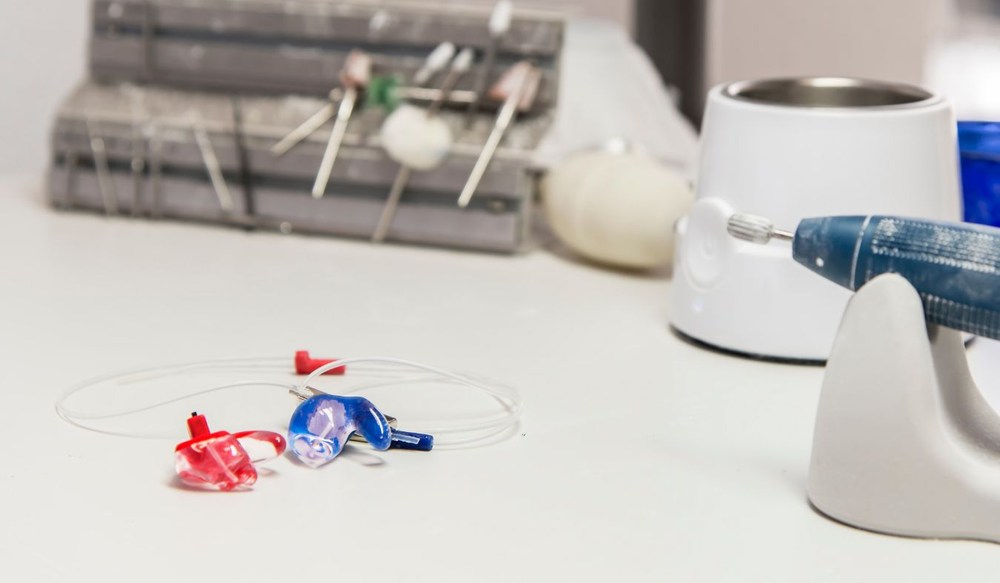Protecting Your Hearing During Summer Sports
Summer brings a lot more noise into your life than you might realize.
Walk In Cleaning Clinic: Come in on Mondays, Wednesdays, Thursdays, or Fridays anytime between 1 – 2pm for our walk in cleaning clinic!

Living with hearing loss can have profound psychological effects that extend beyond the physical challenges. Communication difficulties, social isolation, and feelings of frustration or embarrassment are common experiences for individuals with hearing loss. The inability to fully engage in conversations or participate in social activities can lead to feelings of loneliness and a sense of disconnect from the world around them.
The psychological effects of hearing loss are not limited to a specific age group. Both older adults and younger individuals can face emotional and psychological struggles due to hearing impairment. In older adults, untreated hearing loss has been associated with an increased risk of depression, anxiety, and a decline in cognitive function. In younger individuals, especially children, hearing loss can impact language development, academic performance, and social interactions, potentially leading to feelings of frustration, self-consciousness, and reduced self-esteem.
Recognizing and addressing the psychological effects of hearing loss is essential for promoting mental well-being and improving the overall quality of life for individuals of all ages living with hearing impairment.
Your hearing health plays a major role in your ability to bond and communicate with the people around you. Hearing makes it easier to speak a language. This is why a lot of children born with hearing impairment often show speech and social development issues. In their cases, receiving treatment early, such as wearing hearing aids, can help maintain their social development.
Individuals who develop hearing loss later in life can experience difficulties with communication and social interactions:
As a result, it is not uncommon for untreated hearing loss to have an immediate impact on socialization. Social isolation can settle in as you withdraw from social gatherings and day-to-day communication with peers.
Hearing loss can significantly impact socialization and communication, presenting challenges for individuals in their interactions. However, with support and accommodations, people with hearing loss can actively engage in social activities and maintain meaningful connections. Strategies like using hearing aids and effective communication techniques can enhance their ability to participate despite the challenges. Raising awareness and promoting inclusivity are crucial for ensuring a fulfilling social life for individuals with hearing loss.
Adults and older adults who develop hearing loss later in life often perceive their condition with shame. Feelings of inadequacy and awkwardness are common as they are unable to keep up with everyday conversations. These negative emotions are frequently heightened by ineffective attempts at joining in discussions or banter, as hearing loss can lead to:
Hearing loss can be embarrassing as people fear they behave in a socially unacceptable way. Sometimes, being unable to keep up can also lead to paranoid responses, as the person with untreated hearing loss believes others are talking about them.
Gradually, it can become easier for those with hearing loss to withdraw socially, preventing unpleasant experiences in social gatherings. Unfortunately, social isolation can aggravate mental health issues in the long term.
Hearing loss can create a psychological terrain for mental health issues to develop.
There is no denying that untreated hearing loss can drastically affect your mental health. If you notice hearing difficulties, we strongly recommend reaching out to talk to a HIS. Hearing instruments adapted to your condition can remove the underlying psychological distress linked to untreated hearing loss.
Our team at Better Hearing of Madison County is experienced in helping patients manage their hearing health and recover through specialist hearing aids. Don’t hesitate to reach out and book an appointment with a hearing instrument specialist at (315) 693-3637.

Summer brings a lot more noise into your life than you might realize.

When you’re choosing hearing aids, you want devices that help you

Your hearing aids are more than just devices – they’re your